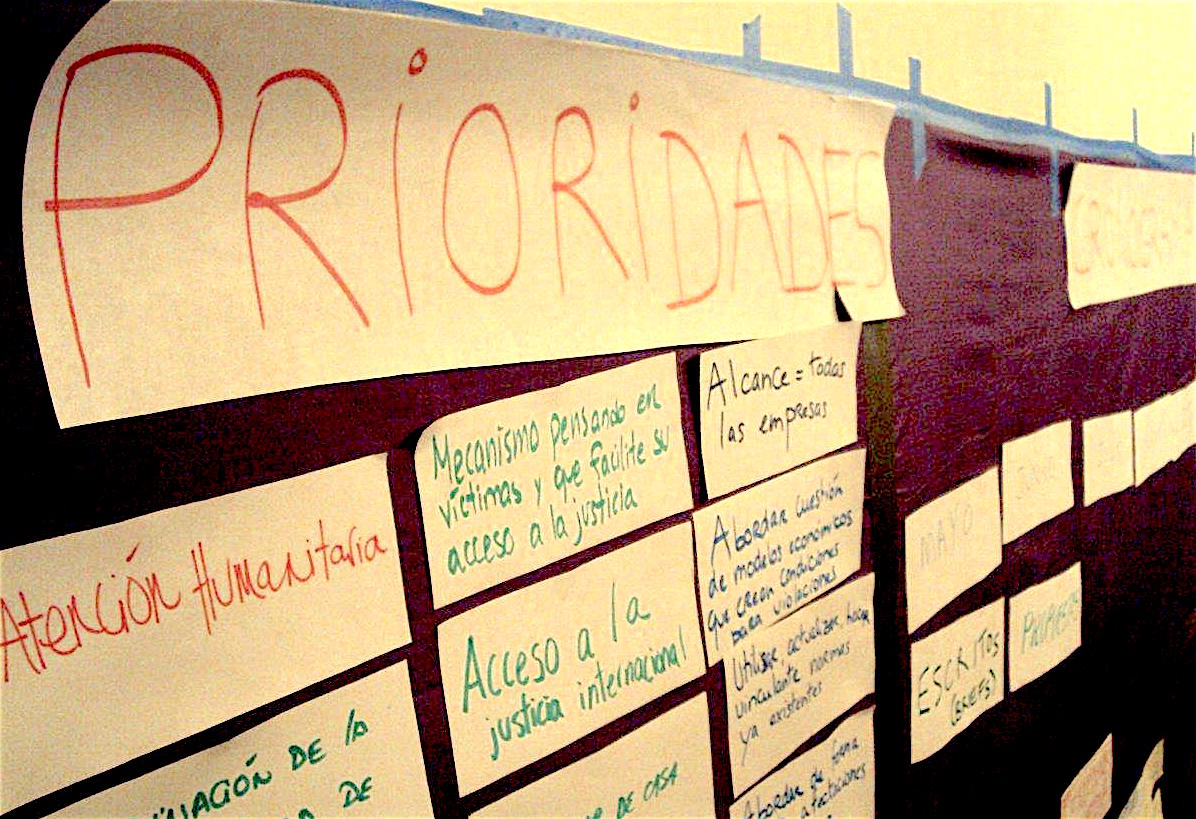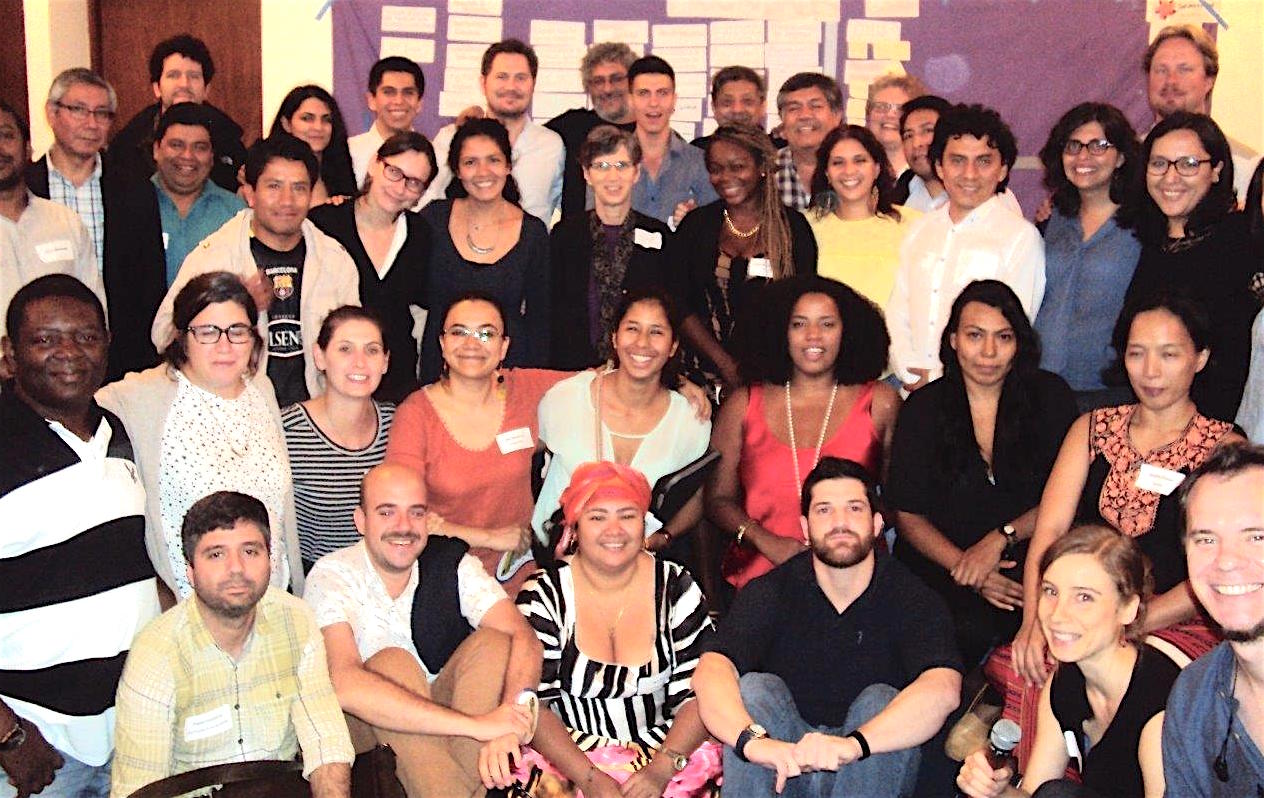ESCR-Net holds Latin America CSO regional consultation on a Treaty on human rights and business
The International Federation for Human Rights (FIDH) and ESCR-Net organized a Latin America regional consultation for civil society organizations (CSOs) from May 15th to 17th in Mexico City, as part of the Treaty Initiative project.
Please download here the Joint Declaration of the Consultation.
This third regional consultation, organised in Latin America together with PODER, brought together members of CSOs, activists, including grassroots groups and representatives of affected people, from 13 countries across Latin America, together with legal practitioners from the Initiative’s Legal Group to hold strategic discussions on CSO priorities for the forthcoming UN treaty on human rights and business, as well as plan related advocacy strategies activities at national, regional and international level.

During the meeting, participants from civil society presented challenges they experience when seeking corporate accountability and their priorities for how the international treaty should respond to these challenges. There were many priorities shared by CSOs during the meeting but one clear expression from participants is that the treaty is designed from the perspective of overcoming the challenges that people most affected by corporate violations face. As such, the priorities included the need for the treaty to focus on preventative means as well as remedial, ensuring as well that any treaty includes the full range of human rights. Furthermore, the priorities expressed by CSOs included the need for the treaty to provide clarity and effective means for overcoming additional challenges that emanate from extraterritorial violations of human rights by companies. There was also a call for an international system of accountability and means of seeking remedy, not relying only on national and regional systems. Another important priority raised was the need for the treaty to deal with all points of corporate production, at the site of production, along the supply chain, consumption and disposal. Similarly, the need to be able to ‘pierce the corporate veil’ was expressed, overcoming the long-standing legal principle that in many jurisdictions prevents accountability by the parent company for the actions of the subsidiary company.
The consultation provided space for CSOs to also develop common advocacy strategies to promote the adoption of a robust international treaty. The strategies agreed are varied in nature, from local mobilisations to national and sub-national government focused activities and advocacy among regional and international bodies that can elevate awareness for the need for the treaty. The advocacy activities planned also incorporate sharing the message of the need for the treaty into affiliated social justice campaign spaces, to further build the alliances among movements calling for meaningful alternatives to the current systems that support corporate related human rights violations.
The CSO inputs at regional consultations, online consultations and written commentaries will all go toward producing submissions on the substance of a future treaty to the Intergovernmental Working Group during its second session in October 2016, as well as be available to all CSOs as a resource for them to consider the development of their own advocacy positions. The ultimate objective of the Treaty Initiative project is to ensure the concrete content proposals of the international treaty will reflect the needs and priorities of affected groups and civil society around the world.

This third regional consultation follows the earlier ones in Asia Pacific in May 2015 and in Africa in October 2015. Following the successful advocacy planning in Mexico, which also brought together leading treaty advocates from Asia and Africa, cross-regional and global advocacy activities will be up-scaled in the lead up to the second session of the Intergovernmental Working Group in October.
For more information please contact Dominic Renfrey (ESCR-Net) or Marion Cadier (FIDH).
See the project webpage here.